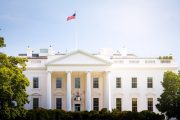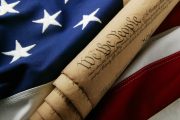
Like a scene from Perry Mason, Juan Salazar, a man accused of several gun- and drug-related crimes, rejected his attorney’s advice and took the stand, completely confessing his guilt.
Whereas in Perry Mason, such a statement would have led to the slender, male jury foreman returning a guilty verdict followed by the defendant’s being led immediately away in handcuffs while the portly Mason looked on lamentably, the judge in Salazar’s case believed there was nothing for the jury to deliberate and he ordered them to find the accused guilty of the catalog of crimes to which he had just confessed.
On appeal, the Fifth Circuit Court of Appeals didn’t approve of the lower court judge’s disregard of the defendant’s Sixth Amendment right to have a jury decide his guilt or innocence. Judge Jerry Smith, writing for the majority in the case of U.S. v. Juan Salazar, held:
Salazar’s confession did not deprive him of his right to have a jury determine his guilt. The Sixth Amendment permits a jury to disregard a defendant’s confession and still find him not guilty. This conclusion does not depend on when the confession occurs — on the stand or pre-trial — or how much the defendant confesses — to one element or to every crime. A defendant’s confession merely amounts to more, albeit compelling, evidence against him. But no amount of compelling evidence can override the right to have a jury determine his guilt.
Upon learning of the circuit court’s ruling, the Fully Informed Jury Association wrote last week, “Without mentioning it by name, the Fifth Circuit has in effect re-affirmed jurors’ right to judge the law as well as the facts of the case and to exercise jury nullification when they deem it appropriate by delivering a Not Guilty verdict even in the face of overwhelming evidence that the defendant has broken the law.”
J.D. Tuccille, writing for Reason magazine, reckoned that support of jury nullification was “probably not what Judge Smith and his colleagues had in mind. But accidental victories can still be chalked up in the ‘win’ column.”
In the Fully Informed Jury Association’s article praising the Salazar decision, they present a bit of the historical reason why a pro-jury nullification court decision (even an unintended one) could be considered a victory for the liberties protected by the Bill of Rights:
Our legal system was never intended to be a level playing field. In fact, it was purposely designed to err on the side of acquittal based on the long-standing principle articulated by the English jurist William Blackstone in 1765 that, “It is better that ten guilty persons escape than that one innocent suffer.” This principle has even deeper roots, being invoked in various forms in the Salem witch trials in the 1690s, by Sir John Fortescue (Chief Justice of the King’s Bench of England) in the 1400s, by the 12th century legal scholar Maimonides, and in the book of Genesis in the Bible. For this reason, the prosecution is meant to bear a much heavier burden of proof in any criminal case, with the defense bearing no burden at all to prove innocence.
Before one is able to understand why jury nullification is a good idea, one must understand the importance of a trial by jury. Our Founding Fathers universally considered it to be a powerful weapon in the war against tyranny.
Thomas Jefferson wrote, “I consider trial by jury as the only anchor yet imagined by man, by which a government can be held to the principles of its constitution.”
In the Federalist Papers, Alexander Hamilton wrote that trial by jury was the “very palladium of free government” and a “valuable check upon corruption.”
Hamilton’s fellow Federalist author and Supreme Court Chief Justice John Jay informed a jury in a 1794 case that
It may not be amiss, here, Gentlemen, to remind you of the good old rule, that on questions of fact, it is the province of the jury, on questions of law, it is the province of the court to decide. But it must be observed that by the same law, which recognizes this reasonable distribution of jurisdiction, you have nevertheless a right to take upon yourselves to judge of both, and to determine the law as well as the fact in controversy.
Given the strength of these opinions, then, it is no surprise that the denial of trials by jury was one of the foremost acts of despotism listed by Thomas Jefferson in the Declaration of Independence.
As for the concept that juries have not only the power but the obligation to nullify unjust rulings of a judge, John Adams wrote, “It is not only [the juror’s] right, but his duty … to find the verdict according to his own best understanding, judgment, and conscience, though in direct opposition to the direction of the court.”
And Hamilton, again from the Federalist Papers, described the jury’s check on the judge as a “double security” that “tends to preserve the purity” of both judge and jury.
Obviously, the idea that juries may act contrary to the will of a judge is nothing new in American law, and it is an act of resistance to government oppression that our Founders believed to be fundamental in a Republic that was to remain free under the rule of law rather than enslaved according to the rule of men.
As indicated by the statements provided above, our Founding Fathers zealously defended this right and recognized that only an informed and empowered jury could effectively protect a defendant from the potentially harmful effects of autocratic judges.
While the subject of nullification occasionally pops up in mainstream media discussions, jury nullification is something that is rarely heard of, even among constitutionalists and supporters of the right of the states to oppose federal overreaching.
Last November, the Washington Times published a story providing a basic introduction to the topic:
Jury nullification occurs when a jury acquits a defendant they believe to be guilty by nullifying one or more laws that they believe should not apply to the defendant. Jurors often exercise nullification when they either personally disagree with a law or feel that the punishment mandated by a law is too harsh. In general, jurors are not reminded by judges of their nullification powers.
Despite the strength of the historical record and the unalloyed support of the concept expressed by many of the leading lights of the Founding Generation, among the powerful, there is rock-ribbed resistance to the practice.
In 2013, the Washington Times reported that activists handing out pro-jury nullification tracts were “arrested and charged with ‘jury tampering’ for distributing handbills at the courthouse that essentially publish the text of the New Hampshire law.”
In an editorial, the Washington Times regarded this incident as an ironic example of the critical need for jury nullification in the fight against government oppression:
This demonstrates clearly the responsibility of juries to serve as a check against judges and prosecutors who may think they’re the last word in all matters of the law. Respect for the law and the courts is necessary for the good of all in a free society, and sometimes, as the number of frivolous and oppressive laws [multiplies], a little nullification can be a tonic, and a reminder to the lawyers, including judges, of who’s really the boss.
As the Fifth Circuit Court of Appeals rightly held, the Constitution guarantees the right to trial by jury. Therefore, the government must bring its case before a jury of the people if the government wants to deprive any person of life, liberty, or property. As the last line of defense of this “unalienable right,” jurors can and should reject government tyranny and refuse to obey a judge’s order to find a defendant guilty or to convict those subjected to prosecution for violating unjust laws.
Joe A. Wolverton, II, J.D. is a correspondent for The New American and travels nationwide speaking on nullification, the Second Amendment, the surveillance state, and other constitutional issues. Follow him on Twitter @TNAJoeWolverton and he can be reached at [email protected].




